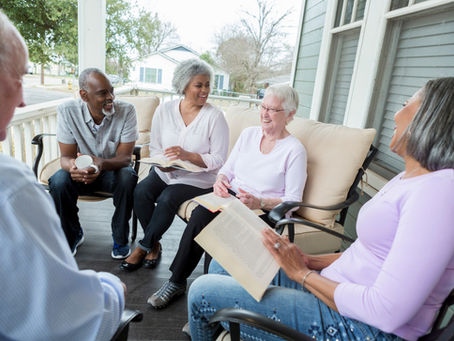The Hub: Behavioral Health Action Organization for Southwestern CT
A division of the Regional Youth Adult Social Action Partnership (RYASAP)
_PNG.png)


Mental Health:
It's OK to Talk About It!
Every day, many people suffer in silence because they are too afraid to discuss their mental health. Additionally, they may not know where to go for help. Always remember -- You are not alone and help is always available! Whether you live with a diagnosed mental health condition or if you are just not feeling your best, there are resources available to help.



Crisis support

You can also be prepared by taking Question, Persuade, Refer (QPR) suicide prevention training.
MATERNAL MENTAL HEALTH

If you are in a mental health crisis or having thoughts of harming yourself or someone else, call or text 988.
If you or a loved one is in immediate danger, call 911.
OLDER ADULTS

Suicide Rates Among Older Adults is High
In Connecticut, From 2015 -2019, 21.3% of suicides were white, non-Hispanic men ages 65+.
Nationally, in 2019 suicide rates were highest in adults ages 85 years and older.
Risk factors for suicide in older adults include:
-
Depression
-
Prior suicide attempts
-
Marked feelings of hopelessness; lack of interest in future plans
-
Feelings of loss of independence or sense of purpose
-
Medical conditions that significantly limit functioning or life expectancy
-
Impulsivity due to cognitive impairment
-
Social isolation
-
Family discord or losses (recent death of loved one)
-
Inflexible personality or marked difficulty adapting to change
-
Access to lethal means (firearms, other weapons)
-
Daring or risk-taking behavior
-
Sudden personality changes
-
Alcohol or medication misuse or abuse
-
Verbal suicide threats such as, “You’d be better off without me” or “Maybe I won’t be around”
-
Giving away prized possessions

-
Take the person seriously
-
Stay with them
-
Help them remove lethal means
-
Reach out to a crisis line (see below)
-
Escort them to mental health services or an emergency room
Read these tips from the American Foundation for Suicide Prevention.
Local resources
resources for educators
Please visit the How Right Now website to explore the available resources and social media graphics
and kindly consider sharing them with your networks.
How Right Now Campaign Shares Mental Health and Coping Resources for Public School Teachers and Staff
As a division of RYASAP, we are pleased to announce our partnership with the How Right Now (HRN) Teacher’s campaign, which is focused on understanding and supporting the needs of public-school K-12 teachers and school staff who are encountering high levels of stress, burnout and grief. HRN provides tailored resources and tools aimed to increase awareness of emotional health issues, enhance the coping skills of teachers and school staff, and improve their adaptability and resilience.
This campaign is made possible through funding by the CDC Foundation. We are excited to work alongside a team of organizational partners to help improve individual and community resilience among public school teachers and school staff.
Watch the HRN campaign video below to hear real stories from teachers and school staff.
wellness resources
8 Dimensions of Wellness
The 8 Dimensions of Wellness model is a useful way of assessing our lives, balancing our priorities, & finding ways to relieve stress.

-
Free/low-cost places to practice the different dimensions in the Greenwich-Westport area and in the Greater Bridgeport area
-
List of apps for wellness & list of free online stress management trainings
-
Handouts on exercise & mental health ... Sleep hygiene ... Stress relievers using the 5 senses... Mood-boosting foods ... Spices to boost brain power
-
Handouts on practicing Gratitude ... Mindfulness ... Positive self-talk ... Coping skills ... Better cell phone use
Attention Providers: Our integrated behavioral health screening tool that assesses for risk of depression, suicidality, anxiety, trauma, alcohol and other drugs, nicotine, problem gambling, and partner violence. Get it here.
tips & worksheets
Download tips and worksheets to practice these skills
Find more Tools 2 Thrive on Mental Health America's Website - in English & Spanish.
Taking Time for Yourself
Radical Acceptance
prevention
Know the Warning Signs
Educate yourself so you can recognize warning signs of mental health conditions
Below are some common signs. For additional signs and more information, visit the NAMI website.
-
Excessive worrying or fear
-
Feeling excessively sad or low
-
Confused thinking or problems concentrating and learning
-
Extreme mood changes, including uncontrollable “highs” or feelings of euphoria
-
Prolonged or strong feelings of irritability or anger
-
Avoiding friends and social activities
-
Difficulties understanding or relating to other people
-
Changes in sleeping habits or feeling tired and low energy
-
Changes in eating habits such as increased hunger or lack of appetite
Prevent a crisis. Reach out to one of the warmlines if you need to talk.
Teach Social Emotional Learning (SEL) Skills
Help children succeed in school and life by teaching social emotional learning (skills). SEL helps them learn to manage emotions, feel empathy and build positive relationships.
Click the chart below from Collaborative for Academic, Social, and Emotional Learning (CASEL) to learn more. You can also download a PDF with detailed information.
FAST FACTS

%20(7).png)





















































